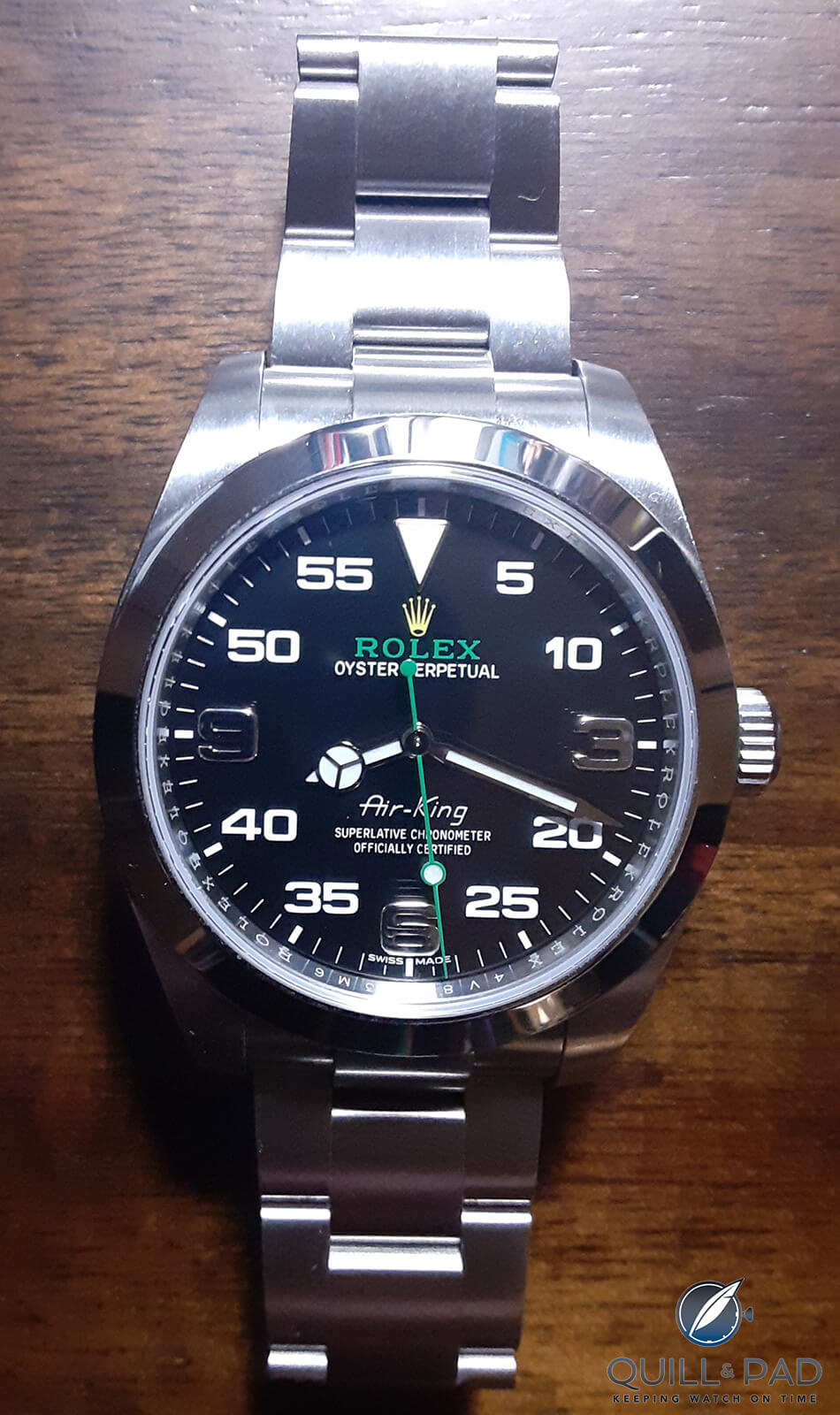—————————————————————————————————–
Bleu, Bleu, Parachrom Bleu!
As the haters insist, Rolex doesn’t produce technically impressive watches. I beg to differ. Since Rolex doesn’t choose to dabble in Haute Horlogerie, it’s easy to overlook the fact that they’ve been one of the most innovative (and influential) watchmakers of the past 100 years.
True, it took them almost that long to develop their own in-house chronograph movement – but it’s one helluva chronograph movement! In terms of accuracy, shock resistance, anti-magnetism, power reserve, and sheer reliability, the Caliber 3131 is a worthy contender to any of its rivals.
Rolex Air-King “Bloodhound” (photo courtesy Quentin R. Bufogle)
Let’s talk magnetism for a moment. As a writer who finds himself virtually married to his laptop, the effect of magnetism on my mechanical wristwatch is a very real concern. While the Air-King uses the same movement and soft iron cage as the trailblazing, non-magnetic Milgauss, it’s Rolex’s proprietary Parachrom Bleu hairspring that renders it virtually impervious to magnetic fields.
Forged from a new patented alloy — the result of several years research on the part of Rolex’s own physicists and engineers – Parachrom Bleu was introduced in 2000. Not only non-magnetic, but highly resistant to heat and wear and up to 10 times more accurate than a traditional hairspring.
But wait … what about silicon? I’m glad you asked.
Never one to rest on its laurels, in 2014 Rolex introduced yet another breakthrough in the science and manufacture of hairsprings: Syloxi. A metaloid created from a silicon and silicon composite mix, Rolex’s Syloxi hairspring boasts all the same benefits of Parachrom Bleu with increased temperature resistance and a revolutionary design allowing it to better compensate for the effects of gravity.
Not only technically impressive watchmaking but serious science and engineering as well.
—————————————————————————————————–
Credit: Source link
